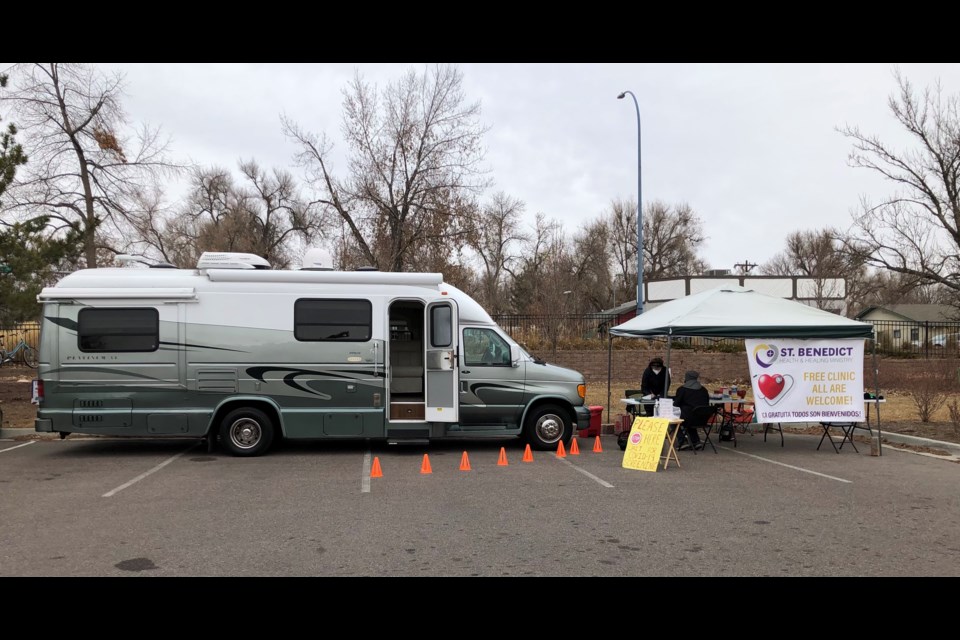For those experiencing homelessness or the homebound, getting to a brick and mortar healthcare clinic can be difficult. A problem St. Benedict Health and Healing Ministry feels it can help with.
St. Benedict Health and Healing Ministry acquired a mobile clinic in 2020 which travels around Boulder County and sets up a clinic at shelters, hospitals or partnered organizations to provide medical care for those who are homeless, financially insecure or homebound.
The free mobile clinic utilizes the services of volunteer nurses and clinicians to fill in some gaps of the current healthcare system, according to Executive Director Shelly Dierking. However, it is not intended to be a primary care facility, Dierking added.
“You know our intention is not to be a primary care provider for patients. We want them to have what we call a patient-centered medical home rather than a brick and mortar clinic,” Dierking said, adding getting to a doctor’s office can be harder to do than most imagine.
COVID vaccine accessibility is one healthcare concern Dierking believes has fallen into the healthcare gap.
In May 2021, St. Benedict Health and Healing Ministry became a certified vaccine provider. Last year, they provided 496 vaccines to those who are homeless or bound at home.
“We offered vaccines at all of the places we set up our clinic on a regular basis. So people are already coming to get their food box, or they’re coming for a meal or coming for assistance with housing or paying their rent. We were there set up to provide COVID vaccines, no appointment necessary,” Dierking said.
The reliance of telehealth during the pandemic has caused a barrier for some to get the care they need. Providers for mental health disorders or those managing addiction mostly moved their appointments to telehealth. For the mobile clinic’s clients, attending virtual visits is not always a possibility.
“So we found plenty of our folks who come to Sunday clinics, who are unhoused, go off their meds and can’t see their counselors because telehealth is completely inaccessible to them. So we would work really hard to get them connected with mental health partners or other people who were still doing in-person appointments,” Dierking said.
Dierking believes that a unique advantage to their mobile clinic is their ability to move from location to location. This makes their clinic more accessible for the homeless who are constantly on the move, or the homebound so the clinic can come directly to them.
“You know, especially people who are unhoused, they don’t stay in one location. We call them a transient population for a reason because they move around, so it's helpful to have someone like us who moves along with them,” Dierking said.
Dierking is hoping to receive a grant from the Colorado Health Foundation that will help the mobile clinic create a non-clinical once a week program for people who are struggling with addiction or mental health issues. Dierking envisions this program would function as a group where participants could share their creative outlet: music, creative writing or dance while receiving everything they need from medication to support.
“So we are hoping to grow that and use our Sunday clinics to help folks and pilot it for a couple of years, and then make that a part of the programs we offer,” Dierking said.



